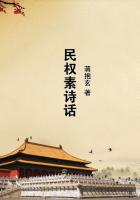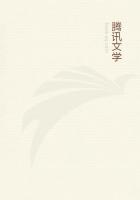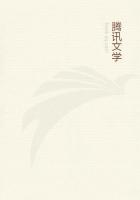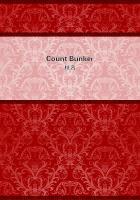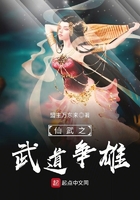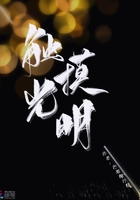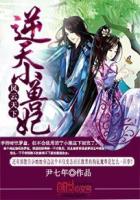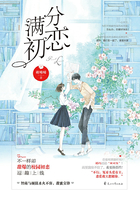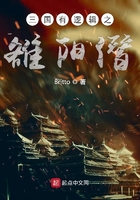Thus accompanied with the attendance both of rich and poor, Lucy returned to her father's house. Bucklaw used his privilege of riding next to the bride, but, new to such a situation, rather endeavoured to attract attention by the display of his person and horsemanship, than by any attempt to address her in private.
They reached the castle in safety, amid a thousand joyous acclamations.
It is well known that the weddings of ancient days were celebrated with a festive publicity rejected by the delicacy of modern times. The marriage guests, on the present occasion, were regaled with a banquet of unbounded profusion, the relics of which, after the domestics had feasted in their turn, were distributed among the shouting crowd, with as many barrels of ale as made the hilarity without correspond to that within the castle. The gentlemen, according to the fashion of the times, indulged, for the most part, in deep draughts of the richest wines, while the ladies, prepared for the ball which always closed a bridal entertainment, impatiently expected their arrival in the state gallery. At length the social party broke up at a late hour, and the gentlemen crowded into the saloon, where, enlivened by wine and the joyful occasion, they laid aside their swords and handed their impatient partners to the floor.
The music already rung from the gallery, along the fretted roof of the ancient state apartment. According to strict etiquette, the bride ought to have opened the ball; but Lady Ashton, ****** an apology on account of her daughter's health, offered her own hand to Bucklaw as substitute for her daughter's.
But as Lady Ashton raised her head gracefully, expecting the strain at which she was to begin the dance, she was so much struck by an unexpected alteration in the ornaments of the apartment that she was surprised into an exclamation, "Who has dared to change the pictures?"All looked up, and those who knew the usual state of the apartment observed, with surprise, that the picture of Sir William Ashton's father was removed from its place, and in its stead that of old Sir Malise Ravenswood seemed to frown wrath and vengeance upon the party assembled below. The exchange must have been made while the apartments were empty, but had not been observed until the torches and lights in the sconces were kindled for the ball. The haughty and heated spirits of the gentlemen led them to demand an immediate inquiry into the cause of what they deemed an affront to their host and to themselves; but Lady Ashton, recovering herself, passed it over as the freak of a crazy wench who was maintained about the castle, and whose susceptible imagination had been observed to be much affected by the stories which Dame Gourlay delighted to tell concerning "the former family," so Lady Ashton named the Ravenswoods. The obnoxious picture was immediately removed, and the ball was opened by Lady Ashton, with a grace and dignity which supplied the charms of youth, and almost verified the extravagant encomiums of the elder part of the company, who extolled her performance as far exceeding the dancing of the rising generation.
When Lady Ashton sat down, she was not surprised to find that her daughter had left the apartment, and she herself followed, eager to obviate any impression which might have been made upon her nerves by an incident so likely to affect them as the mysterious transposition of the portraits. Apparently she found her apprehensions groundless, for she returned in about an hour, and whispered the bridegroom, who extricated himself from the dancers, and vanished from the apartment. The instrumets now played their loudest strains; the dancers pursued their exercise with all the enthusiasm inspired by youth, mirth, and high spirits, when a cry was heard so shrill and piercing as at once to arrest the dance and the music. All stood motionless; but when the yell was again repeated, Colonel Ashton snatched a torch from the sconce, and demanding the key of the bridal-chamber from Henry, to whom, as bride's-man, it had been entrusted, rushed thither, followed by Sir William Ashton and Lady Ashton, and one or two others, near relations of the family. The bridal guests waited their return in stupified amazement.
Arrived at the door of the apartment, Colonel Ashton knocked and called, but received no answer except stifled groans. He hesitated no longer to open the door of the apartment, in which he found opposition from something which lay against it. When he had succeeded in opening it, the body of the bridegroom was found lying on the threshold of the bridal chamber, and all around was flooded with blood. A cry of surprise and horror was raised by all present; and the company, excited by this new alarm, began to rush tumultuously towards the sleeping apartment. Colonel Ashton, first whispering to his mother, "Search for her; she has murdered him!" drew his sword, planted himself in the passage, and declared he would suffer no man to pass excepting the clergyman and a medical person present. By their assistance, Bucklaw, who still breathed, was raised from the ground, and transported to another apartment, where his friends, full of suspicion and murmuring, assembled round him to learn the opinion of the surgeon.

